Paul DAnieri - Ukraine and Russia: From Civilied Divorce to Uncivil War
Here you can read online Paul DAnieri - Ukraine and Russia: From Civilied Divorce to Uncivil War full text of the book (entire story) in english for free. Download pdf and epub, get meaning, cover and reviews about this ebook. year: 2019, publisher: Cambridge University Press, genre: Politics. Description of the work, (preface) as well as reviews are available. Best literature library LitArk.com created for fans of good reading and offers a wide selection of genres:
Romance novel
Science fiction
Adventure
Detective
Science
History
Home and family
Prose
Art
Politics
Computer
Non-fiction
Religion
Business
Children
Humor
Choose a favorite category and find really read worthwhile books. Enjoy immersion in the world of imagination, feel the emotions of the characters or learn something new for yourself, make an fascinating discovery.
- Book:Ukraine and Russia: From Civilied Divorce to Uncivil War
- Author:
- Publisher:Cambridge University Press
- Genre:
- Year:2019
- Rating:4 / 5
- Favourites:Add to favourites
- Your mark:
Ukraine and Russia: From Civilied Divorce to Uncivil War: summary, description and annotation
We offer to read an annotation, description, summary or preface (depends on what the author of the book "Ukraine and Russia: From Civilied Divorce to Uncivil War" wrote himself). If you haven't found the necessary information about the book — write in the comments, we will try to find it.
Explores the long-term dynamics of international conflict between Ukraine, Russia and the West, revealing the historic roots of a new Cold War.
DAnieri explores the dynamics within Ukraine, between Ukraine and Russia, and between Russia and the West, that emerged with the collapse of the Soviet Union and eventually led to war in 2014. Proceeding chronologically, this book shows how Ukraines separation from Russia in 1991, at the time called a civilized divorce, led to what many are now calling a new Cold War. He argues that the conflict has worsened because of three underlying factors - the security dilemma, the impact of democratization on geopolitics, and the incompatible goals of a post-Cold War Europe. Rather than a peaceful situation that was squandered, DAnieri argues that these were deep-seated pre-existing disagreements that could not be bridged, with concerning implications for the resolution of the Ukraine conflict. The book also shows how this war fits into broader patterns of contemporary international conflict and should therefore appeal to researchers working on the Russia-Ukraine conflict, Russias relations with the West, and conflict and geopolitics more generally.
Who or what is responsible for the war in Ukraine and the new crisis in the East-West relations? Paul DAnieri is not looking for simple answers to this seemingly simple question. His response is rooted in the examination of the Russo-Ukrainian relations over the past thirty years and points to profound differences in the way Russian and Ukrainian elites understand and pursue their interests in the post-Cold War world. A work of great erudition, this book contributes to more than one field of study and is a must read for anyone who is interested in the origins of the current crisis. Serhii Plokhy, Mykhailo S. Hrushevskyi Professor of Ukrainian History, Harvard University, Massachusetts
Uniquely balanced and rigorous in its in-depth consideration of Ukrainian, Russian, and Western sources and perspectives, DAnieris Ukraine and Russia should now be the first book one consults when seeking to understand the nature of todays conflict and possible paths forward. Henry Hale, George Washington University, Washington DC
Paul DAnieris Ukraine and Russia: From Civilized Divorce to Uncivil Conflict, provides one of the first comprehensive accounts of Ukrainian-Russian relations after the collapse of the Soviet Union. DAnieri masterfully weaves theoretical arguments about the nature of relations between states - not only Ukraine and Russia, but also the United States and the West - with his deeply-researched historical narrative of these relations from 1989 to the present. Ambitiously, DAnieri is not content to pick one theory or assign blame to one country for his account, but rightly moves his analysis between international and domestic factors to provide a comprehensive explanation of this history. Ukraine and Russia is a terrific read, of interest not only to social scientists and historians, but to anyone interested in understanding this tumultuous relationship. Michael McFaul, author of From Cold War to Hot Peace: A U.S. Ambassador in Putins Russia
Fortunate readers get three books in one: the first major survey to look at the long cycle of conflict between Russia and Ukraine since 1991; a balanced assessment of this dynamics place within the general problems of the post-Cold War settlement; and a fascinating debate on realist and liberal attempts to explain the crisis. Andrew Wilson, University College London and European Council on Foreign Relations
Although this book is rich in detail, it is very well laid out for the average reader wanting to understand how this new frozen conflict occurred. The author pulls no punches and lays out various arguments in a straightforward manner. Jerry Lenaburg, New York Journal of Books
this volume offers a very detailed account of developments from the 1990s to 2019, covering agreements between the two states, the role of economic factors this book provides a sophisticated analysis, supported by cogent facts, to understand this troubling conflict. T. R. Weeks, Choice
Why have Ukraine and Russia been unable to develop a workable relationship since 1991? Paul DAnieri answers this question by examining the development of ties between Kyiv and Moscow since the Soviet collapse, and placing them in the broader context of Ukraines and Russias relations with the United States and the European Union. Lanxin Xiang, Russia and Eurasia
DAnieri takes on the elementary but heavily loaded task of explaining how and why this conflict came about (p. 2) and delivers a non-partisan, thoughtful and thorough analysis. Pavel K. Baev, Journal of Peace Research
this intensively researched and engagingly written book is a necessary and timely addition to the post-Cold War literature. Scholars of IR will be indulged by DAnieris skilful overview of IR theories, while policy makers will find invaluable insights into the effective management of security dilemmas this broadly conceived and well-synthesized book represents interdisciplinary scholarship at its best. Olena Lennon, Harvard Ukrainian Studies
Paul DAnieri is a Professor of Political Science and Public Policy at the University of California, Riverside. He is author of Understanding Ukrainian Politics (2007) and Economic Interdependence in Ukrainian-Russian Relations (1999), as well as a widely-used textbook on international politics. DAnieri is Vice President of the American Association of Ukrainian Studies.
Paul DAnieri: author's other books
Who wrote Ukraine and Russia: From Civilied Divorce to Uncivil War? Find out the surname, the name of the author of the book and a list of all author's works by series.

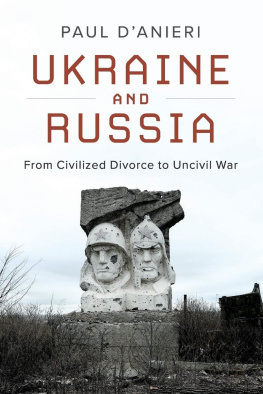
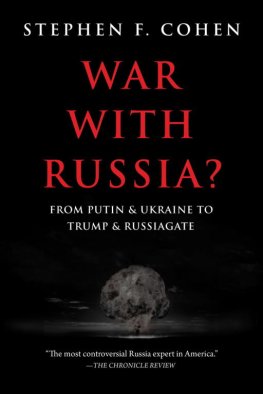
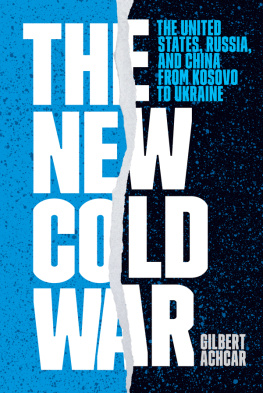
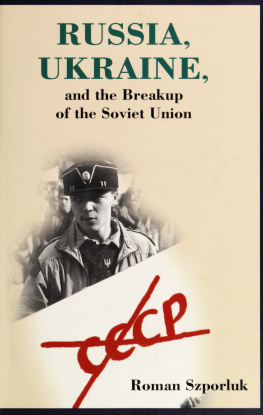
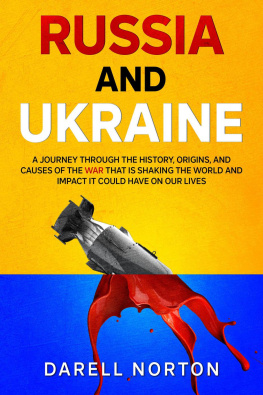
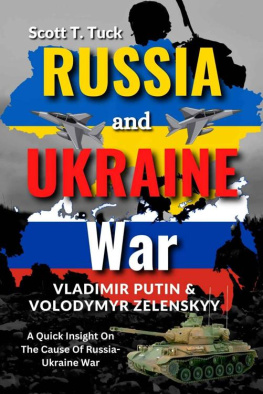
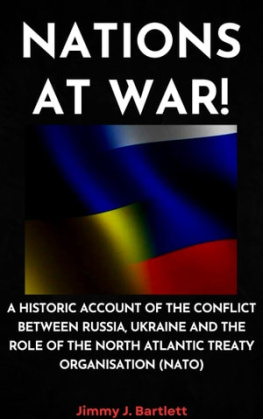

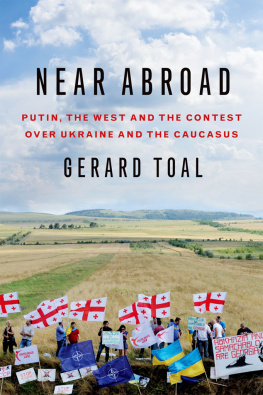
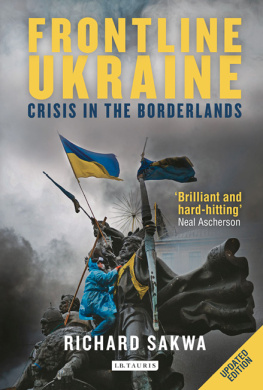
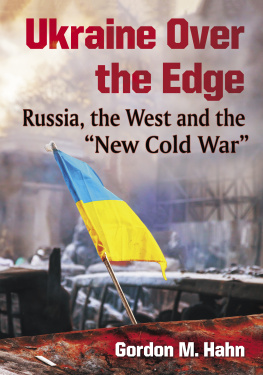
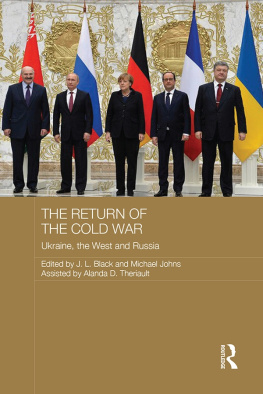


 Map 0.1 Ukraine, showing areas occupied by Russia as of 2019 The Sources of Conflict over Ukraine But our idea is that the wolves should be fed and the sheep kept safe.Leo Tolstoy, War and Peace
Map 0.1 Ukraine, showing areas occupied by Russia as of 2019 The Sources of Conflict over Ukraine But our idea is that the wolves should be fed and the sheep kept safe.Leo Tolstoy, War and Peace